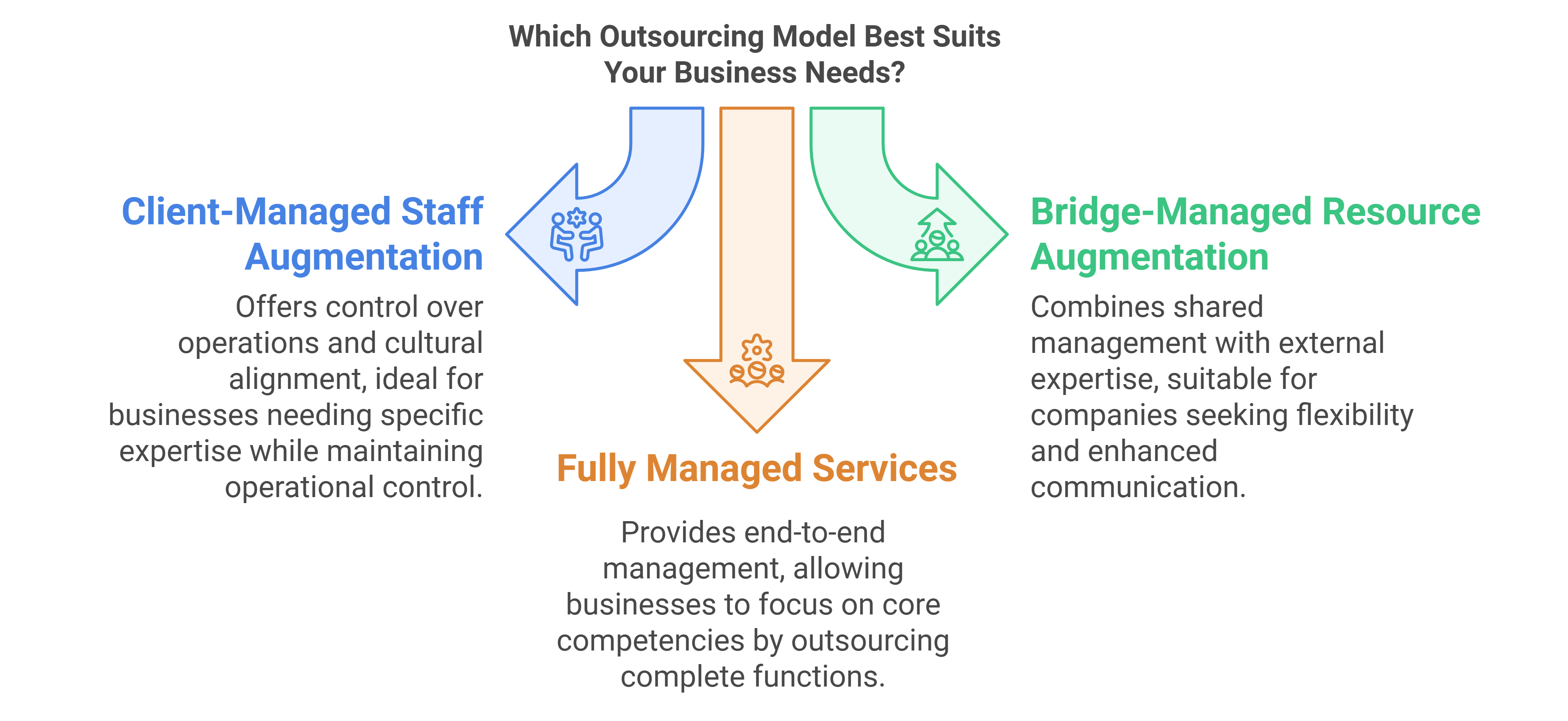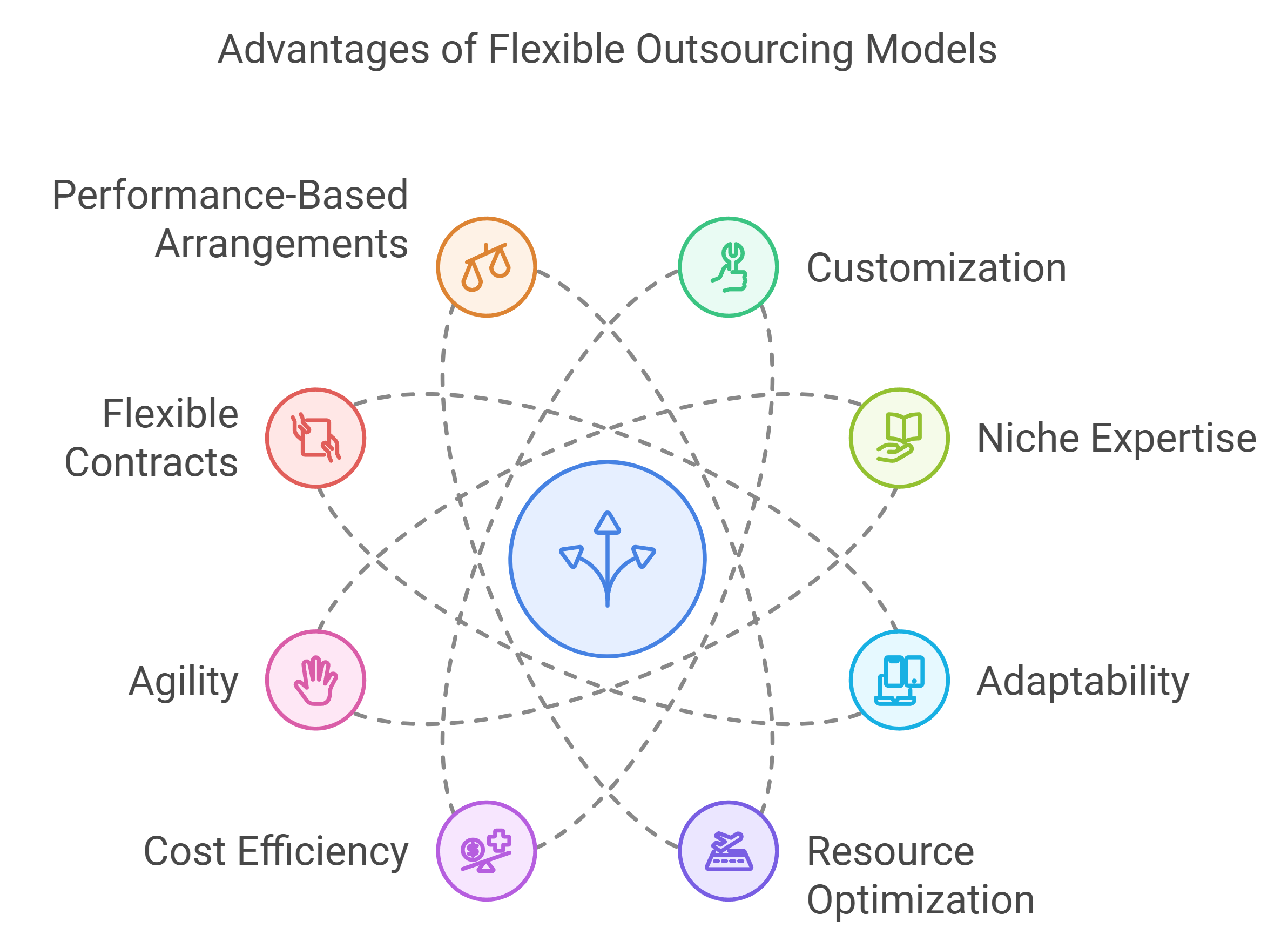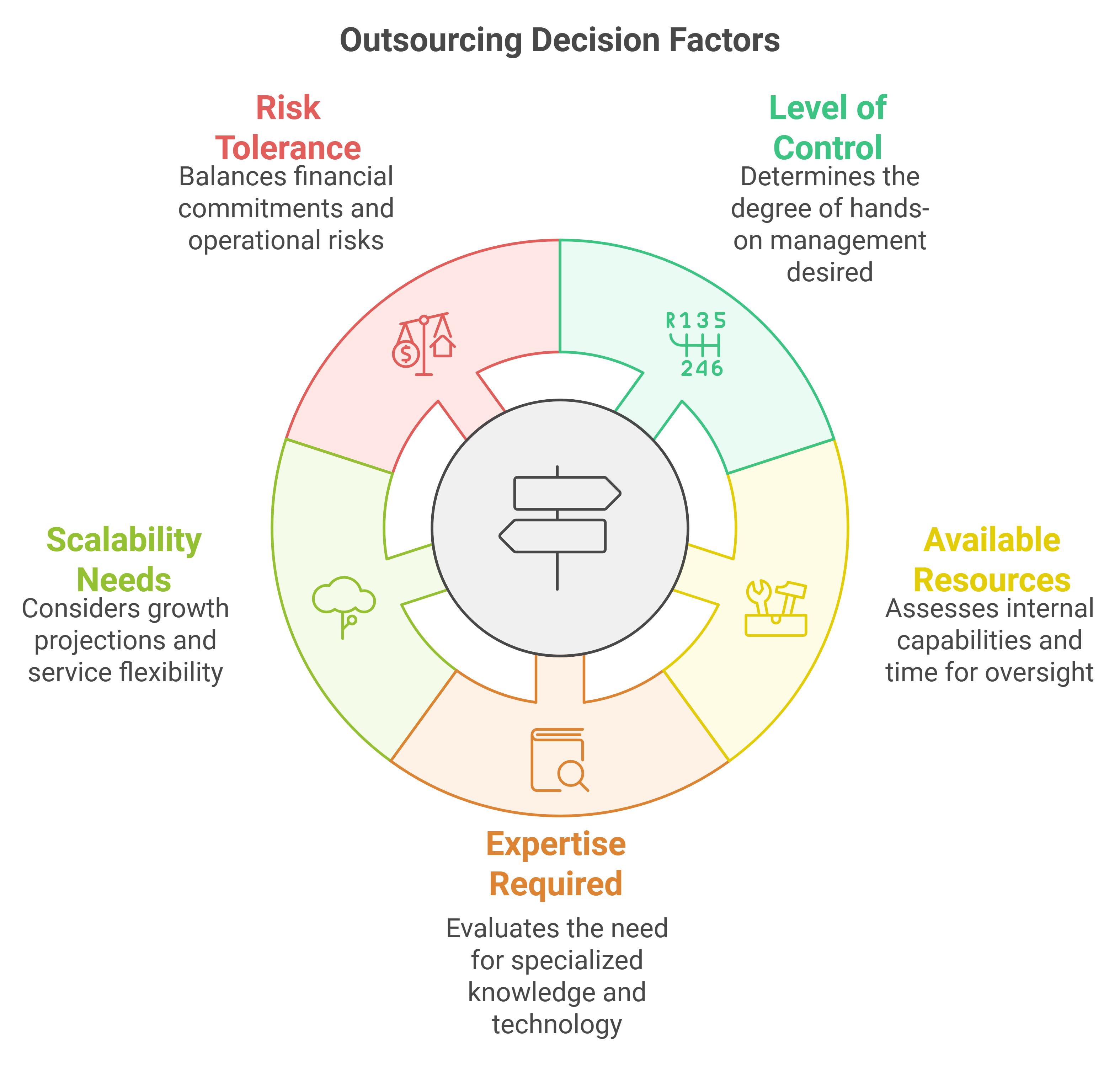Flexible Outsourcing Models to Support Business Growth
In today's fast-paced and ever-changing business landscape, flexibility is more than just a desirable trait—it's a necessity. Small and medium-sized enterprises (SMEs) striving for growth must adapt quickly to market demands, technological advancements, and customer expectations. One area where flexibility can significantly impact growth is in outsourcing, particularly with call center services. This article explores various flexible outsourcing models that support business growth, the benefits they offer, and how to choose the right model for your company's needs.

Introduction
The Need for Flexibility in Today's Dynamic Market
Businesses today operate in an environment characterized by rapid changes and uncertainties. Factors such as fluctuating customer demands, seasonal variations, and competitive pressures require companies to be agile and responsive. Flexibility in operations allows businesses to:
- Adapt Quickly: Respond to market changes without significant delays.
- Optimize Resources: Allocate resources efficiently to areas of greatest need.
- Mitigate Risks: Reduce the impact of unforeseen challenges.
Challenges of Rigid Service Models
Traditional outsourcing models often come with long-term contracts and rigid structures that may not align with the dynamic needs of growing SMEs. Challenges include:
- Lack of Control: Limited ability to influence day-to-day operations.
- Inflexible Terms: Difficulty in adjusting service levels or scope.
- Financial Commitments: High costs associated with scaling services up or down.
These limitations can hinder growth and prevent businesses from capitalizing on new opportunities.
Overview of Outsourcing Models
To address these challenges, flexible outsourcing models have emerged, offering customizable solutions tailored to individual business needs. The primary models include:
1. Client-Managed Staff Augmentation
Control Over Day-to-Day Operations
Description: The outsourcing provider supplies skilled personnel who become an extension of your in-house team. You retain control over daily tasks, workflows, and performance management.
Benefits:
- Direct Oversight: Maintain control over processes and quality.
- Cultural Alignment: Integrate outsourced staff into your company culture.
- Scalability: Easily adjust team size based on demand.
Ideal For: Businesses that require specific expertise while wanting to maintain operational control.
2. Bridge-Managed Resource Augmentation
Collaborative Management Approach
Description: A hybrid model where management responsibilities are shared between your company and the outsourcing provider. Both parties collaborate on strategy, performance monitoring, and process improvement.
Benefits:
- Shared Expertise: Leverage the provider's industry knowledge and best practices.
- Flexibility: Customize the level of control and involvement.
- Enhanced Communication: Regular collaboration ensures alignment with business goals.
Ideal For: Companies seeking a balance between control and leveraging external expertise.
3. Fully Managed Services
End-to-End Management by the Provider
Description: The outsourcing partner assumes full responsibility for the call center operations, from staffing and training to technology and quality assurance.
Benefits:
- Turnkey Solution: Minimal involvement required from your end.
- Expert Management: Benefit from the provider's specialized skills and experience.
- Focus on Core Business: Free up internal resources to concentrate on strategic initiatives.
Ideal For: Businesses that prefer to outsource complete functions to focus on core competencies.

Benefits of Flexible Models
Tailoring Services to Specific Needs
- Customization: Design services that align precisely with your operational requirements and objectives.
- Niche Expertise: Access specialized skills and technologies relevant to your industry.
- Adaptability: Modify services as your business evolves without significant disruptions.
Scaling Up or Down as Required
- Resource Optimization: Increase or decrease capacity in response to market conditions or project demands.
- Cost Efficiency: Pay only for the services you need, avoiding unnecessary expenses.
- Agility: Respond swiftly to opportunities or challenges without the constraints of fixed resources.
Minimizing Risks Associated with Long-Term Commitments
- Flexible Contracts: Shorter-term agreements or adjustable terms reduce financial risks.
- Performance-Based Arrangements: Align costs with outcomes to ensure value for money.
- Reduced Overhead: Lower investments in infrastructure and fixed assets.

Case Scenarios
Scenario 1: Tech Startup Leveraging Client-Managed Staff Augmentation
A rapidly growing tech startup needed additional customer support representatives to handle increased user inquiries after a successful product launch. By opting for client-managed staff augmentation, they:
- Maintained Control: Oversaw the training and integration of the outsourced team.
- Ensured Consistency: Aligned customer service practices with their brand values.
- Scaled Quickly: Expanded their team within weeks to meet demand.

Scenario 2: E-Commerce Company Utilizing Bridge-Managed Resource Augmentation
An e-commerce company facing seasonal fluctuations sought a flexible solution. Through bridge-managed resource augmentation, they:
- Shared Management Duties: Collaborated on performance goals and customer satisfaction metrics.
- Optimized Resources: Adjusted staffing levels during peak shopping periods.
- Enhanced Expertise: Leveraged the provider's experience in e-commerce customer service.
Scenario 3: Financial Services Firm Adopting Fully Managed Services
A financial services firm wanted to outsource their call center to focus on core financial products. By choosing fully managed services, they:
- Delegated Operations: Transferred full responsibility to the outsourcing partner.
- Ensured Compliance: Benefited from the provider's adherence to regulatory requirements.
- Improved Efficiency: Achieved higher service levels without internal management burdens.
How Flexibility Contributed to Their Success
In each scenario, the flexible outsourcing model enabled the business to:
- Meet Customer Needs Effectively: Provided high-quality service aligned with customer expectations.
- Support Growth Initiatives: Freed up resources to invest in growth and innovation.
- Adapt to Market Changes: Responded to external factors without significant delays or costs.

Choosing the Right Model
Factors to Consider
Level of Control Desired
- Operational Involvement: Do you want hands-on management or prefer to delegate?
- Decision-Making Authority: How important is it for you to make day-to-day decisions?
Available Resources
- Internal Expertise: Do you have the necessary skills in-house to manage outsourced teams?
- Time and Attention: Can your management team devote time to overseeing outsourced operations?
Expertise Required
- Industry-Specific Knowledge: Does the provider offer specialized knowledge relevant to your sector?
- Technology and Tools: Are advanced technologies needed that the provider can supply?
Scalability Needs
- Growth Projections: How rapidly do you anticipate scaling operations?
- Flexibility Requirements: Do you need to adjust services frequently?
Risk Tolerance
- Financial Commitments: Are you comfortable with long-term contracts?
- Operational Risks: How important is risk mitigation in your decision-making?

Assessment Tools or Consultations Offered
- Needs Analysis: Work with providers to assess your specific requirements and objectives.
- Trial Periods: Consider starting with a pilot program to evaluate the model's suitability.
- Customized Proposals: Request tailored solutions that address your unique challenges.
Conclusion
Flexibility in outsourcing is a powerful enabler of business growth, offering SMEs the agility to adapt, scale, and innovate. By selecting the right outsourcing model—whether it's client-managed staff augmentation, bridge-managed resource augmentation, or fully managed services—you can align your customer service operations with your strategic goals, optimize resources, and minimize risks.
Reiterate the Importance of Flexibility
In a business environment where change is the only constant, flexibility isn't just an advantage—it's essential. Embracing flexible outsourcing models empowers your business to navigate uncertainties confidently and seize opportunities as they arise.
Explore Your Options with Bridge Business Support Services
At Bridge Business Support Services, we offer a range of flexible outsourcing models designed to support your unique business needs. Our collaborative approach ensures that you receive the right level of support and control to drive your growth ambitions.
Ready to Find the Perfect Fit for Your Business? Contact us today to discuss how our flexible outsourcing solutions can propel your business forward. Let's work together to build a partnership that adapts with you, supports your goals, and contributes to your success in today's dynamic market.